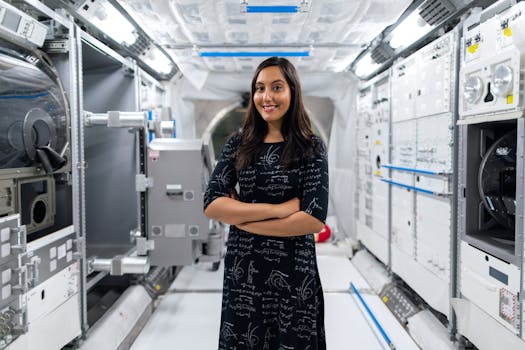The Future of Space Travel
Space travel, once a domain reserved for astronauts and scientists, is rapidly evolving into an accessible frontier for private citizens and commercial enterprises. This progression from government-led missions to privatized space exploration signifies a monumental shift in how humanity interacts with outer space. Innovations in technology, the emergence of new companies, and increasing investments are shaping the future of space travel in unprecedented ways.

The Role of Private Companies
Private companies are at the forefront of the new space race. SpaceX, founded by Elon Musk, has been instrumental in reducing the costs associated with space travel. Their reusable rockets, such as the Falcon 9, have revolutionized the industry by making multiple launches feasible with a single vehicle. Blue Origin, led by Jeff Bezos, also aims to make space travel more accessible through its New Shepard suborbital rocket designed for human spaceflight.
Other notable companies include Boeing and Virgin Galactic. Boeing's Starliner spacecraft is developed for NASA's Commercial Crew Program, aiming to transport astronauts to the International Space Station (ISS). Virgin Galactic focuses on suborbital tourism, offering customers a brief experience of weightlessness and a view of Earth from space.
Technological Advancements
The future of space travel heavily relies on technological advancements. Reusability is a significant breakthrough pioneered by SpaceX. The ability to reuse rockets drastically reduces costs and resources required for each launch. Another crucial advancement is in propulsion technology. Ion thrusters and other electric propulsion methods are being developed to enable longer missions with higher efficiency.
Artificial Intelligence (AI) and robotics also play pivotal roles. AI systems can optimize flight paths, manage spacecraft systems autonomously, and even assist in decision-making processes during missions. Robotics are essential for tasks such as repairs on the ISS or exploring distant planets where human presence is not yet viable.
| Technology | Application | Companies Involved |
|---|---|---|
| Reusable Rockets | Cost Reduction | SpaceX, Blue Origin |
| Electric Propulsion | Longer Missions | Aerojet Rocketdyne, NASA |
| AI & Robotics | System Management & Exploration | NASA, JAXA, ESA |
Commercial Space Tourism
One of the most exciting prospects for the general public is commercial space tourism. Companies like Virgin Galactic and Blue Origin are already selling tickets for suborbital flights that offer a few minutes of weightlessness and breathtaking views of Earth. These ventures aim to make space accessible not just to scientists but to anyone willing to pay the price.
The cost of these trips remains high, but efforts are underway to make them more affordable over time. According to space.com, ticket prices for Virgin Galactic's flights are currently around $450,000 per seat. As technology advances and competition increases, it is expected that these prices will decrease significantly.
International Collaboration and Regulation
The future of space travel will also depend on international collaboration and regulation. Space is inherently global, requiring cooperation among countries to ensure safety and sustainability. The Outer Space Treaty of 1967 forms the basis for international space law but may need updating to address modern challenges such as space debris management and territorial claims on celestial bodies.
Organizations like NASA, ESA (European Space Agency), Roscosmos (Russian Space Agency), and JAXA (Japan Aerospace Exploration Agency) frequently collaborate on missions and share research data. Such collaborations are vital for pooling resources and expertise, making ambitious projects feasible.
The Future: Colonization and Beyond
The ultimate goal for many involved in space travel is colonization of other planets. Mars is often cited as the most likely candidate due to its similarities with Earth. SpaceX's Starship aims to facilitate human missions to Mars within this decade. The concept involves sending cargo missions first to build infrastructure followed by human settlers.
Lunar bases are another area of interest. NASA's Artemis program plans to return humans to the Moon by 2024 with the long-term goal of establishing a sustainable presence there. This would serve as a stepping stone for further exploration of Mars and beyond.
The potential benefits of colonizing other planets include ensuring humanity's survival in case of catastrophic events on Earth and unlocking new resources that could support technological advancements back home.
The future of space travel holds immense promise with private companies driving innovation, technological advancements making missions more feasible, commercial tourism opening up new experiences for civilians, international collaboration ensuring safe practices, and ambitious goals like colonization pushing the boundaries of what’s possible.
While challenges remain—such as cost reduction, regulatory frameworks, and ensuring safety—the progress made thus far indicates a bright future where space travel could become an integral part of human life.